On-the-job injuries are not only traumatic, they can result in lifelong debilitation or even death. While civil negligence lawsuits are generally not permitted in these instances, workers and their survivors may be entitled to workers’ compensation benefits.
Employers have a duty to maintain safe working environments for employees, and when they do not, there needs to be accountability.
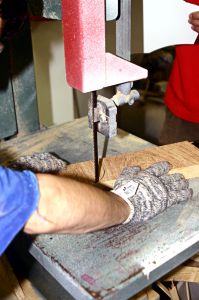 According to the United States Occupational Safety and Health Administration (OSHA), a New England manufacturer of stairs and cabinets has been fined $62,000 for violations involving machinery, dangerous chemicals and fire hazards after a safety investigation launched after a worker lost two fingers in an unsafe machine on which he was working.
According to the United States Occupational Safety and Health Administration (OSHA), a New England manufacturer of stairs and cabinets has been fined $62,000 for violations involving machinery, dangerous chemicals and fire hazards after a safety investigation launched after a worker lost two fingers in an unsafe machine on which he was working.
OSHA noted that if the machine had properly guarded, worker would not have lost his fingers. OSHA discovered numerous additional hazards while investigating this incident.
A dust collection system, crucial in an area where sawing and drilling of wood occurs, lacked a required spark detector designed to prevent heated metal from entering the system and causing an explosion. Investigators also found improper disposal of flammable rags and spray booths lines with layers of old flammable solvent. Plus, there was flammable material in and around electric outlets, elevated workstations without safety railings, too few emergency exits, no emergency showers in the event of chemical exposure, insufficient protective gear and training and other serious violations.
Continue reading
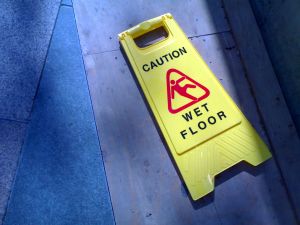 Claimant slipped on a wet floor at the medical center and seriously injured her right leg, hip, lower back, and neck. She quickly applied for workers’ compensation benefits and was awarded around $580 per week as the maximum allowable benefit under a temporary total disability rating. This happened in 2006.
Claimant slipped on a wet floor at the medical center and seriously injured her right leg, hip, lower back, and neck. She quickly applied for workers’ compensation benefits and was awarded around $580 per week as the maximum allowable benefit under a temporary total disability rating. This happened in 2006. Massachusetts Workers Compensation Lawyers Blog
Massachusetts Workers Compensation Lawyers Blog




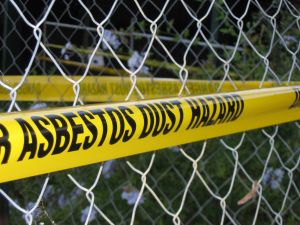 He was diagnosed with malignant pleural mesothelioma at the end of 2005. He filed a products liability lawsuit against several asbestos manufacturers and gave a videotaped deposition in 2007. He died that year. Following his death, his wife filed a workers’ compensation claim against defendant.
He was diagnosed with malignant pleural mesothelioma at the end of 2005. He filed a products liability lawsuit against several asbestos manufacturers and gave a videotaped deposition in 2007. He died that year. Following his death, his wife filed a workers’ compensation claim against defendant. He was trying to check the oil on a machine known as a bakery loader after service had been performed on the equipment. He placed his head into the gearbox area to view the oil level, but the machine guards had not been reinstalled after being serviced. A gear arm rotated without warning and struck him in the head, trapping it between the gear arm and the metal frame.
He was trying to check the oil on a machine known as a bakery loader after service had been performed on the equipment. He placed his head into the gearbox area to view the oil level, but the machine guards had not been reinstalled after being serviced. A gear arm rotated without warning and struck him in the head, trapping it between the gear arm and the metal frame. According to the United States Occupational Safety and Health Administration (
According to the United States Occupational Safety and Health Administration ( OSHA inspectors discovered that a conveyor belt’s rotating parts were not properly guarded to prevent the hands and fingers of workers from getting caught in the mechanism. Conditions similar to this have been known to cause pinched hands and fingers, crushed or amputated hands and fingers, contusions and nerve damage. The law requires these conveyor belt systems be properly guarded so no part of an employee’s body can come into contact with moving machinery.
OSHA inspectors discovered that a conveyor belt’s rotating parts were not properly guarded to prevent the hands and fingers of workers from getting caught in the mechanism. Conditions similar to this have been known to cause pinched hands and fingers, crushed or amputated hands and fingers, contusions and nerve damage. The law requires these conveyor belt systems be properly guarded so no part of an employee’s body can come into contact with moving machinery.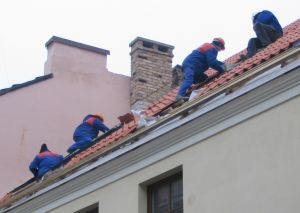 Inspectors found employees working on top of a two-story residential roof without fall protection equipment. According to federal regulations, roofing workers are to be provided with fall protection equipment. In this case, they were without such safety equipment due to a deliberate failure on behalf of the employer.
Inspectors found employees working on top of a two-story residential roof without fall protection equipment. According to federal regulations, roofing workers are to be provided with fall protection equipment. In this case, they were without such safety equipment due to a deliberate failure on behalf of the employer. Claimant began working for employer in November of 2006. On a typical workday, claimant would see multiple patients in their respective homes. She drove her personal vehicle when going to see her clients. She would stop in the office to pick up supplies, read her mail, and attend company meetings.
Claimant began working for employer in November of 2006. On a typical workday, claimant would see multiple patients in their respective homes. She drove her personal vehicle when going to see her clients. She would stop in the office to pick up supplies, read her mail, and attend company meetings.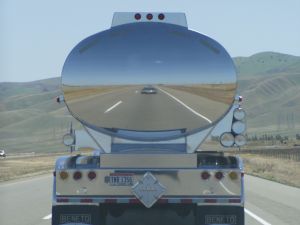 Claimant requested that employer pay for additional temporary total disability benefits and for an evaluation by a pain management specialist. Employer denied employee’s claim.
Claimant requested that employer pay for additional temporary total disability benefits and for an evaluation by a pain management specialist. Employer denied employee’s claim.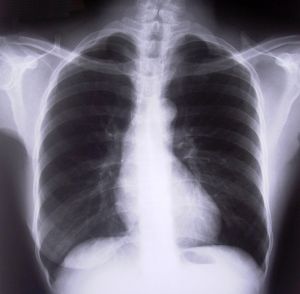 Both claimant and employer stipulated that this was a work-related injury. Her doctor placed her on medical leave and recommended that she stop working for employer. Her doctor continued to treat her and concluded that she reached maximum medical improvement in March of 2009.
Both claimant and employer stipulated that this was a work-related injury. Her doctor placed her on medical leave and recommended that she stop working for employer. Her doctor continued to treat her and concluded that she reached maximum medical improvement in March of 2009. According to a recent news article in the
According to a recent news article in the